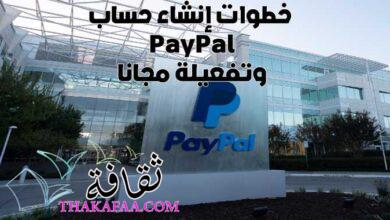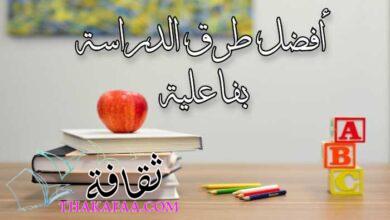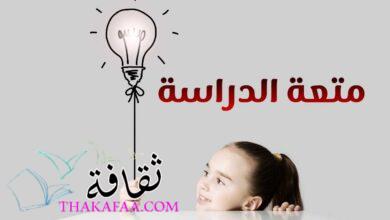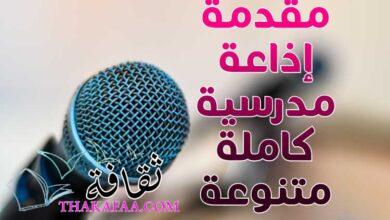Quran Classes: Bridging Tradition and Technology for Spiritual Growth

The Quran, the sacred scripture of Islam, has been a source of guidance, inspiration, and peace for Muslims for over 14 centuries. Learning its verses, understanding its meanings, and mastering its recitation have long been cherished practices within the Muslim community. Today, Quran Classes are evolving, adapting to the digital age while preserving the sanctity of this timeless tradition. Platforms like YouTube have become powerful tools in this transformation, offering accessible, engaging, and high-quality lessons to learners worldwide. This article delves into the importance of Quran classes, their modern delivery through online channels, and how they empower individuals to connect with their faith in meaningful ways.
إقراء في هذا المقال
- 1 The Timeless Value of Quranic Education
- 2 The Digital Shift: Quran Classes on YouTube
- 3 Mastering Tajweed: The Art of Recitation
- 4 Hifz: The Noble Pursuit of Memorization
- 5 Spiritual and Practical Benefits
- 6 Overcoming Challenges in Online Quran Learning
- 7 The Role of Platforms Like Azhar El Quran
- 8 The Future of Quran Classes
- 9 Conclusion
The Timeless Value of Quranic Education
For Muslims, the Quran is more than a book—it is the literal word of Allah revealed to Prophet Muhammad (peace be upon him). Studying it is both an act of worship and a means of personal growth. Traditionally, Quran classes were held in mosques, homes, or Islamic schools, where students gathered under the tutelage of a scholar or Qari (a skilled reciter). These sessions focused on recitation (Tilawah), memorization (Hifz), and the rules of pronunciation (Tajweed), fostering a deep bond between teacher and student.
While this method remains invaluable, it often posed challenges. Not everyone had access to a qualified teacher, especially in remote areas or non-Muslim-majority regions. Time constraints and financial limitations further restricted opportunities for consistent learning. The rise of digital platforms, however, has revolutionized this landscape, making Quranic education more inclusive and widespread than ever before. YouTube, in particular, has emerged as a hub for free and accessible Quran classes, with channels like Azhar El Quran leading the charge.
The Digital Shift: Quran Classes on YouTube
The integration of technology into religious education has opened new doors for learners of all ages and backgrounds. YouTube, with its vast reach and user-friendly interface, has become a go-to platform for Quran classes. Channels such as Azhar El Quran provide a wealth of content, from beginner-friendly lessons to advanced tutorials, all available at the click of a button. This shift has several key advantages:
- Universal Access
Whether you’re in a bustling city or a rural village, an internet connection is all you need to join a global classroom. This is especially significant for the Muslim diaspora, who may lack local resources, and for converts seeking to explore Islam. - Variety of Content
YouTube offers a diverse range of lessons tailored to different goals—recitation, memorization, or understanding the Quran’s meanings (Tafsir). Learners can choose videos that match their skill level and interests, creating a personalized study plan. - Cost-Free Learning
Unlike traditional classes that may require fees, most YouTube-based Quran lessons are free. This aligns with the Islamic principle of sharing knowledge generously, ensuring that financial barriers don’t hinder spiritual growth. - On-Demand Flexibility
With pre-recorded videos, students can learn at their own pace, pausing, rewinding, or revisiting lessons as needed. This flexibility is a game-changer for busy professionals, students, and parents. - Visual and Auditory Engagement
Videos combine spoken instruction with visuals, such as Arabic text or pronunciation guides, making complex concepts easier to grasp. This multimedia approach enhances retention and understanding.
Mastering Tajweed: The Art of Recitation
One of the core components of Quran classes is Tajweed, the set of rules governing the correct pronunciation of Quranic Arabic. Proper Tajweed ensures that the Quran is recited as it was revealed, preserving its beauty and meaning. YouTube channels like Azhar El Quran offer concise, practical Tajweed lessons that break down these rules into digestible segments. For example, a short video might focus on the articulation points (Makharij) of Arabic letters, helping learners refine their recitation step by step.
Tajweed is not just a technical skill—it’s a spiritual practice. Reciting the Quran correctly deepens one’s connection to the text, making each word a meditative act of devotion. Online lessons make this discipline accessible to beginners and seasoned reciters alike, with expert instructors demonstrating proper techniques through audio-visual examples. The ability to replay these lessons ensures that students can practice until they achieve mastery, a luxury rarely afforded in traditional settings.
Hifz: The Noble Pursuit of Memorization
Another pillar of Quranic education is Hifz, the memorization of the Quran in its entirety. Becoming a Hafiz or Hafiza (one who has memorized the Quran) is a prestigious achievement in Islam, believed to bring immense blessings in this life and the hereafter. YouTube provides invaluable resources for this journey, including memorization techniques shared in short, focused videos. These clips might offer tips like repeating verses in small chunks, listening to recitations, or associating meanings with passages—all proven methods to aid retention.
Memorizing the Quran requires dedication, but online tools make it more manageable. Students can follow along with reciters, track their progress, and join virtual communities for motivation. Channels like Azhar El Quran cater to this need by offering structured guidance, ensuring that learners stay disciplined and inspired throughout their Hifz journey.
Spiritual and Practical Benefits
Quran classes, whether delivered in person or online, offer profound benefits that extend beyond academic learning:
- Spiritual Connection
Engaging with the Quran strengthens faith, provides comfort, and instills moral values. Each verse carries lessons for daily life, guiding Muslims toward righteousness and mindfulness. - Cultural Preservation
For Muslims living in non-Arabic-speaking regions, Quran classes preserve linguistic and religious heritage. Children and adults alike can maintain ties to their identity through recitation and study. - Mental Discipline
Memorizing and reciting the Quran sharpens memory, focus, and patience—skills that benefit all areas of life. Studies suggest that such practices enhance cognitive function, particularly in young learners. - Community Building
Online platforms foster virtual communities where learners share experiences, ask questions, and support one another. This sense of belonging mirrors the camaraderie of traditional classes.
Overcoming Challenges in Online Quran Learning
While YouTube-based Quran classes are transformative, they come with challenges. The lack of direct interaction with a teacher can make it harder to receive personalized feedback. Distractions at home or technical issues, like poor internet quality, may also disrupt focus. However, these obstacles are not insurmountable. Many channels encourage viewers to reach out via comments or social media for clarification, while dedicated study spaces and reliable technology can enhance the experience.
For parents introducing children to Quran classes online, supervision is key. Setting a consistent schedule and engaging with the content alongside kids can ensure they stay motivated. Channels like Azhar El Quran often design short, engaging videos that hold young learners’ attention, making the process enjoyable and effective.
The Role of Platforms Like Azhar El Quran
Azhar El Quran stands out as a beacon in the realm of online Quranic education. Its YouTube channel offers a treasure trove of resources—short tutorials, recitation examples, and motivational content—all delivered with clarity and authenticity. Rooted in the tradition of Al-Azhar, Egypt’s renowned center of Islamic learning, the channel brings scholarly expertise to a global audience. Its bite-sized videos cater to modern attention spans, proving that profound learning can happen in minutes.
The Future of Quran Classes
As technology advances, the future of Quran classes looks promising. Interactive apps, virtual reality recitations, and AI-driven pronunciation tools could further enhance online learning. YouTube will likely remain a cornerstone, with channels like Azhar El Quran adapting to new trends while staying true to their mission. The blend of tradition and innovation ensures that Quranic education remains relevant and accessible for generations to come.
Conclusion
Quran classes have evolved from the intimate settings of mosques to the boundless realm of the internet, with platforms like YouTube leading the way. Channels such as Azhar El Quran make recitation, Tajweed, and memorization available to all, bridging geographical and financial gaps. By offering free, flexible, and engaging lessons, they empower learners to deepen their faith, preserve their heritage, and grow spiritually. In a world of constant change, Quran classes—whether through a short Tajweed tutorial or a memorization guide—provide an anchor of timeless wisdom, ensuring that the divine words of Allah resonate in hearts everywhere.






















